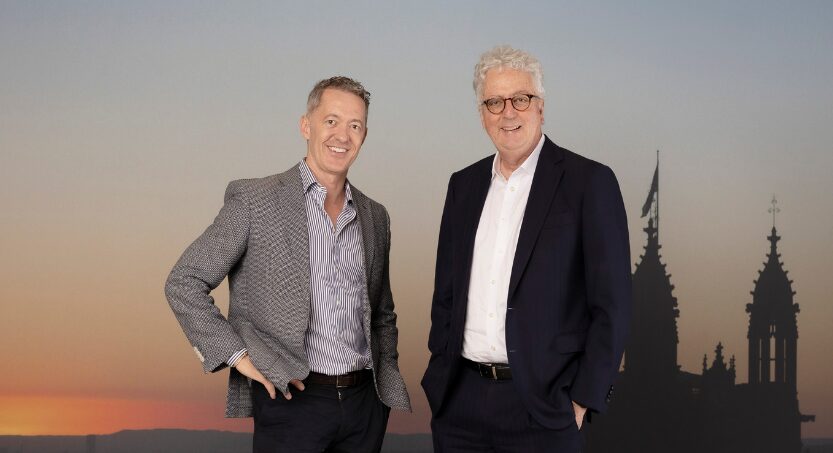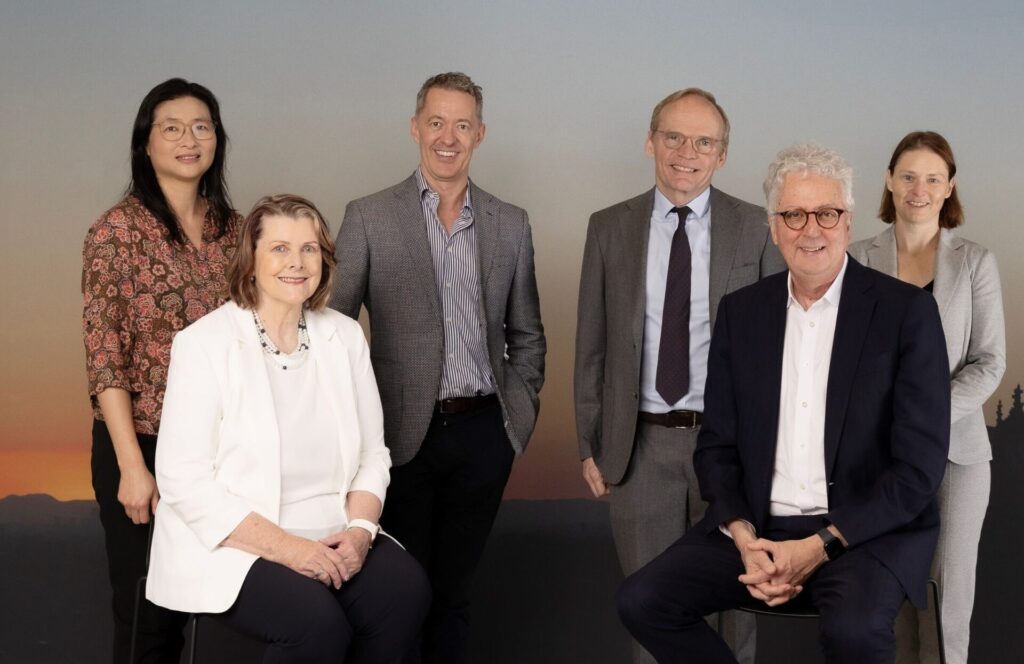Snow Medical partners with University of Sydney in $50 million investment to transform glaucoma treatment

There is new hope of life-changing treatments for people living with glaucoma, the ‘sneak thief of sight’, after the Snow family and their Snow Medical Research Foundation (Snow Medical) announced a $50 million partnership with the University of Sydney to launch the Snow Vision Accelerator this week. It follows a record $100 million gift from the Khuda Family Foundation to the university earlier in February to increase diversity in the STEM sector.
The Snow Medical commitment over 10 years is the largest single philanthropic investment in vision science in Australia.
Glaucoma affects 300,000 people in Australia and 80 million globally, with 4.5 million having gone completely blind. The disease often progresses silently until significant vision is lost and 50% of sufferers in Australia are thought to be undiagnosed.
The Snow Vision Accelerator will bring together leading Australian and International research groups to develop innovative treatments that enhance the ability of optic nerve cells to withstand injury and survive, addressing a pressing unmet need for effective therapies.
“Snow Medical is all about finding the best scientists with incredible ideas that can have an impact where there is a huge disease burden, and the impact of blindness on people’s lives is multifaceted and profound,” said Tom Snow, Chair of the Snow Medical Research Foundation.
“This builds on Terry Snow’s vision to deliver real-world solutions at an accelerated pace by backing world-class researchers in Australia. This is about doing philanthropy differently – by giving the long-term stability and resources to the best teams needed to translate research to the bedside. It is a commitment to excellence, global collaboration, urgency and intellectual vitality,” Tom said.

“This is science that the existing funding structure couldn’t progress because it’s a such a high-risk, agile and long-term commitment. The existing structure tends to be a three-or-four year cycle, which means that in year one, researchers need to have results so they can write them up in year two, and then in year three, they can reapply for funding. And that leads to incrementalism.
“Science is slower than people realise and we need to be more patient. We need to back bigger and bolder ideas and that’s where philanthropy can play an amazing part. When we see long-term philanthropy work with science or medical research, that’s when we see tremendous results,” said Tom.
The University’s Vice-Chancellor and President, Professor Mark Scott AO, said: “On behalf of the University of Sydney, I extend my heartfelt thanks to the Snow family and Snow Medical Research Foundation for enabling this innovative research and commercialisation.
“Built on the outstanding research skills and knowledge of the world-renowned ophthalmologist Professor Jonathan Crowston and his team at the University, this partnership in the Snow Vison Accelerator shares our deep commitment to outstanding scientific endeavour and to making a tangible difference to the millions of people affected by glaucoma. Together, we’ll work to create a future free from its tenacious grip.”
Professor Jonathan Crowston, leading the program from the University of Sydney, said: “This program is game-changing because it addresses the unmet need for drugs that increase nerve resilience, a field where such treatments currently do not exist. Its unique scale and focus integrate teams across biological research, data science, drug development and clinical trials, all working towards a common product-oriented goal.”
The program, set to begin in July 2025, also aims to attract additional funding from government, philanthropy and the private sector. A collaboration with Monash Institute of Pharmaceutical Sciences will strengthen the translation of discoveries into clinical applications.
Tom said: “I’ve been touched by so many people affected by glaucoma and seen the impact it has on lives. The prospect of achieving a step change in millions of lives, and hundreds of millions of people into the future, if we can deliver this to the bedside, is incredibly motivating.”
Tech billionaire invests $100 million in getting more girls into STEM careers
In the largest gift ever made to the University of Sydney, $100 million from the Khuda Family Foundation will fund an ambitious 20-year program, creating a pathway for girls from Western Sydney into STEM (Science, Technology, Engineering and Mathematics) education and careers.
Beginning in Year 7, this unique pipeline program has three stages including tutoring, mentoring and university scholarships. It will be one of the largest investments in women in STEM globally and is the largest single philanthropic gift in NSW.
Robin Khuda, founder and CEO of Australian-founded data centre business, AirTrunk, established the Khuda Family Foundation with a focus on improving STEM skills and increasing the number of women in technology.
Professor Scott said: “Robin Khuda came to the University with a challenge he knew we cared deeply about – the lack of gender diversity in STEM and of opportunities and support for students to pursue their interest in STEM studies and careers.
“We’ve worked together in close collaboration to create this program and forge this partnership, which will create life-changing opportunities for girls and women from western Sydney.
“Thanks to the exceptional generosity of the Khuda Family Foundation, the program’s impact on their education and professional futures will lead to a generational change in addressing diversity, skills and participation in STEM.”
Professor Scott said philanthropy plays a critical role in supporting the University to benefit the community. “Our proven record of research and teaching excellence and ability to engage external partners successfully are why these two philanthropists trust the University to realise their vision of long-standing, life-changing impact.
“These landmark donations demonstrate how this connection with donors enables us to undertake projects on this ambitious scale, which would otherwise be impossible.”
Significant grants update
Other significant grants announced recently include a $7.5m donation from Dennis Bastas, CEO of DBG Health, to address leadership and workforce challenges facing the global health sector. The Bastas Academy for Health Leadership is a cross-disciplinary partnership between the University of Melbourne’s Faculty of Medicine, Dentistry and Health Sciences and Melbourne Business School and will provide leadership development programs to upskill health professionals to drive innovation, collaboration and excellence across the industry.
“The Academy will provide opportunities for emerging health leaders from diverse backgrounds as well as to upskill the sector’s workforce with an innovative approach to confronting complex health issues. Empowering this talent pipeline is key to a healthier future and stronger health system within both Victoria and Australia,” said Mr Bastas.
The Hudson Institute of Medical Research in Melbourne has received two grants from the Jack Brockhoff Foundation valued together at almost $300,000 to support research projects over the next two years. The projects of Dr Shouya Feng and Dr Elly Jarred, covering anti-inflammatory therapies for autoinflammatory diseases and the role of epigenetics in female reproductive health, stood out in a competitive field, said the institute. The Jack Brockhoff Foundation supports the health and wellbeing of all Victorians and funds talented early-career researchers.
The Australian Festival of Chamber Music (AFCM) in Townsville-Gurambilbarra received $525,000 over four years from The Ian Potter Foundation in what it called game-changing funding to support the expansion of its Pathways Program.
Executive Director Ricardo Peach said: “This funding from The Ian Potter Foundation is a phenomenal vote of confidence in regional Australia, with a nationally significant initiative now solidifying its presence in Townsville-Gurambilbarra. AFCM is beyond thrilled and excited!”
Paul Conroy, CEO of The Ian Potter Foundation, said: “We are delighted to support the AFCM as it leverages its 30+ years of experience to foster industry connections and provide a program to address the gaps in high-level specialist production training and business development skills needed by emerging musicians to fully develop their careers.”